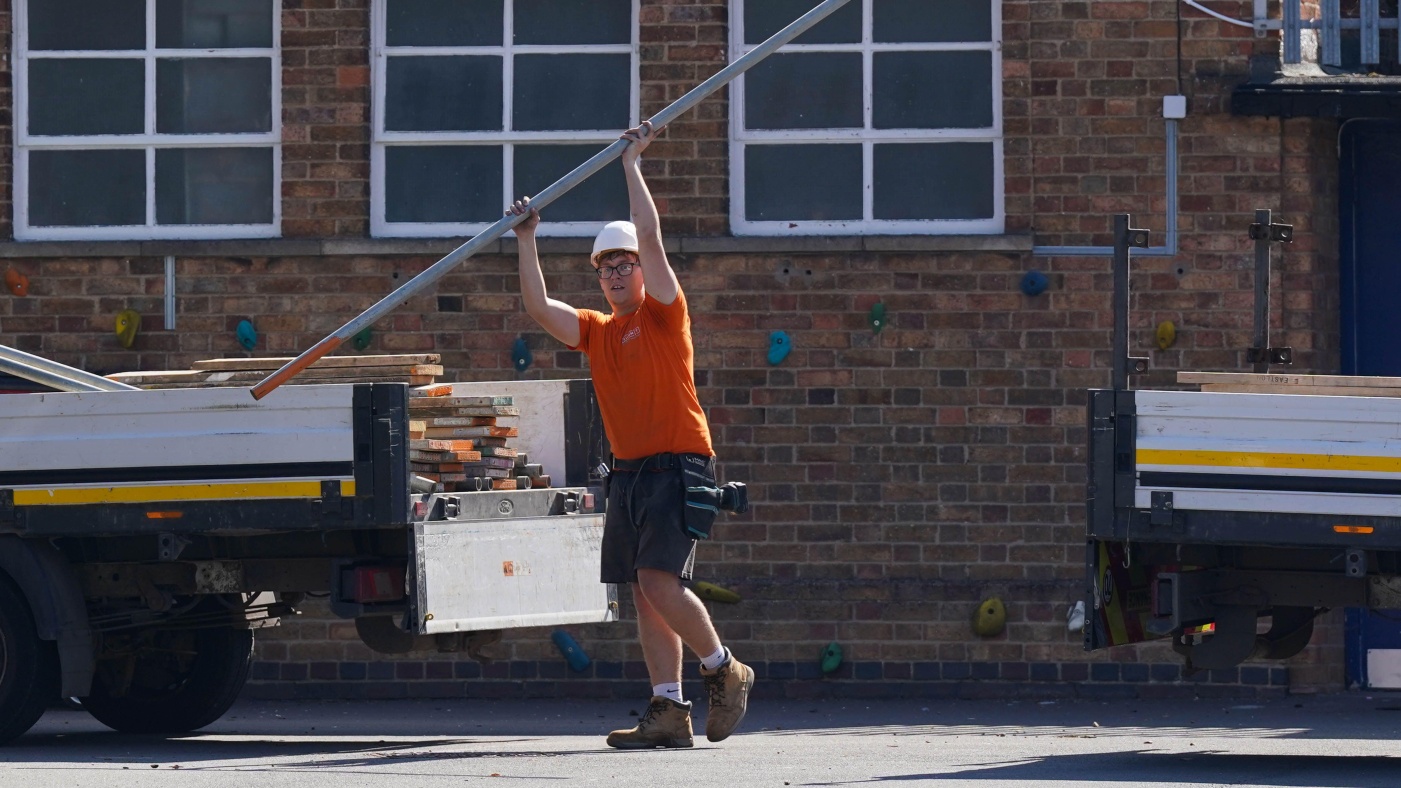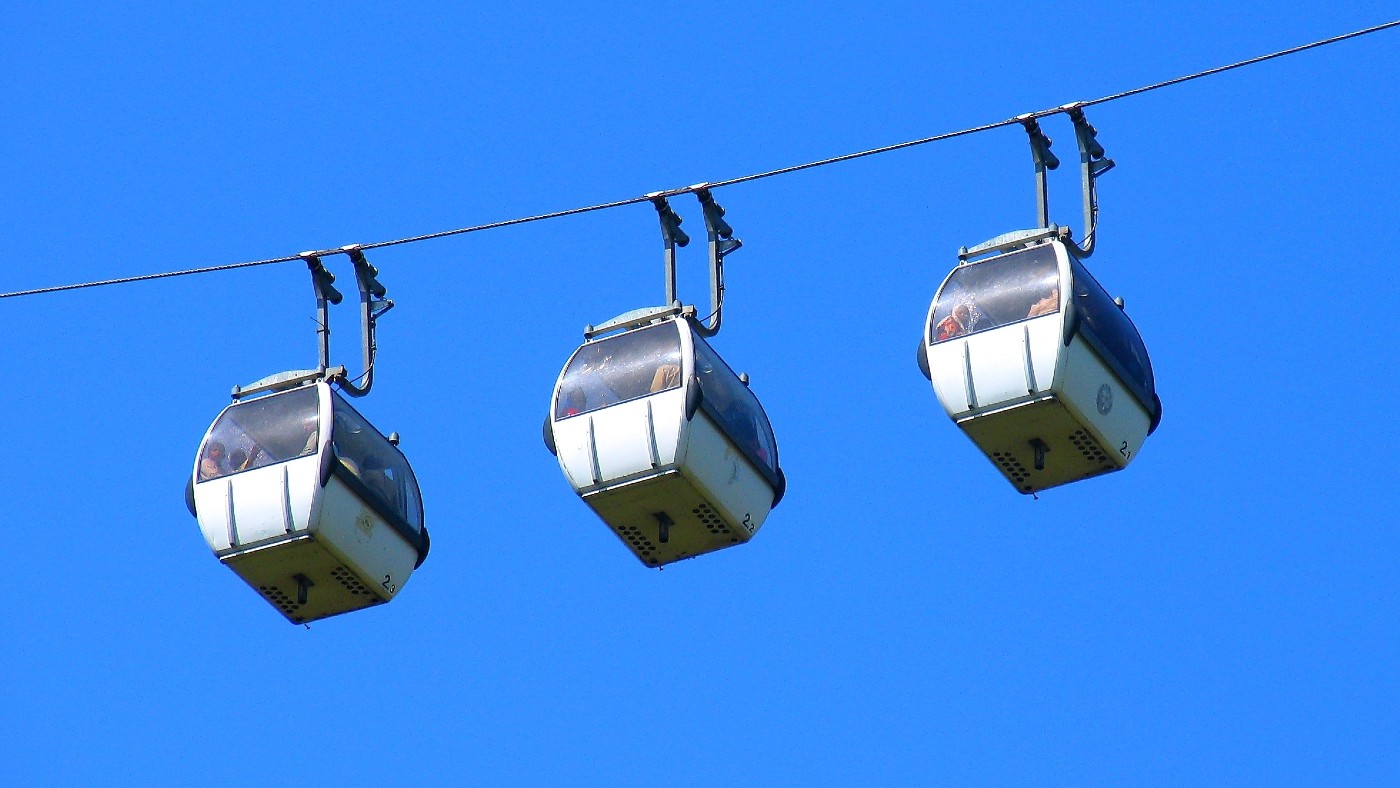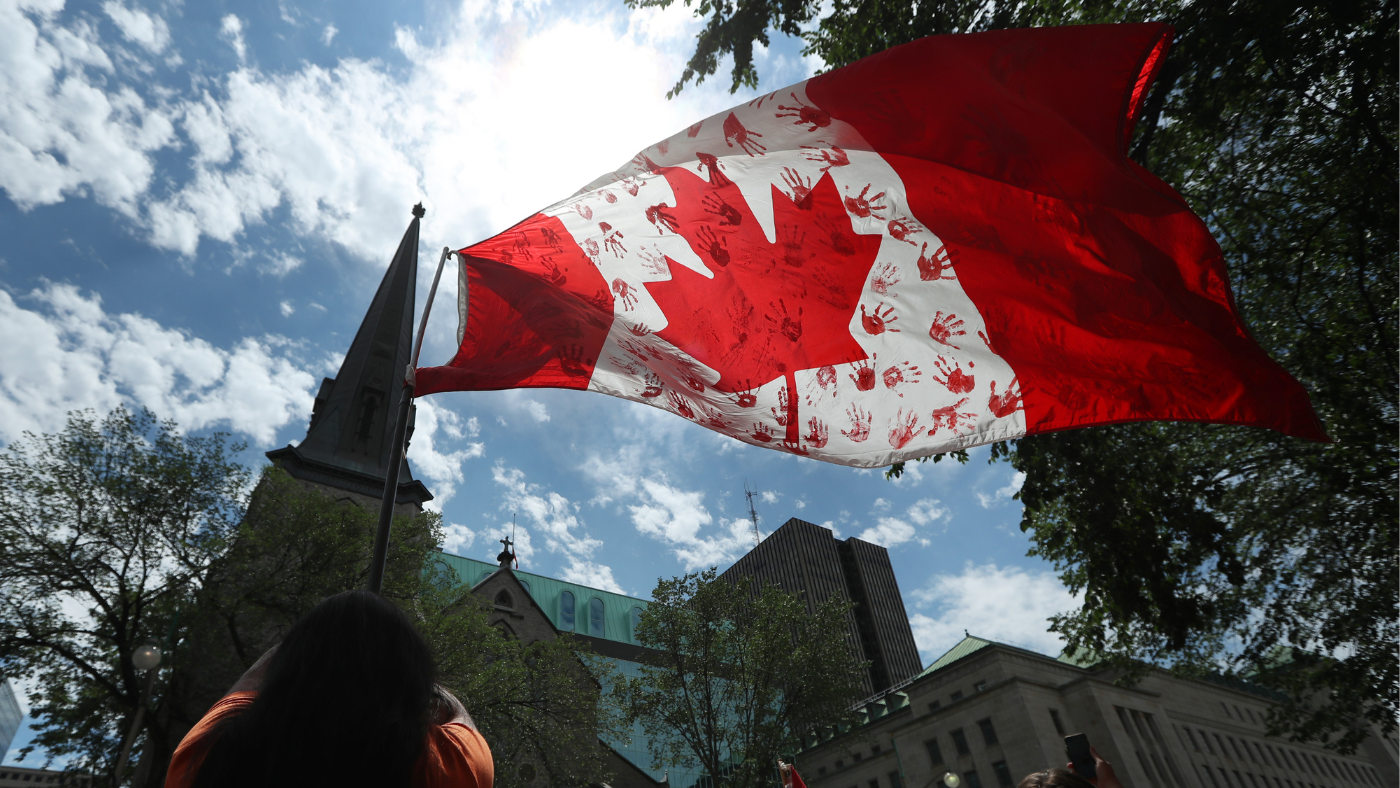‘Learning about the Holocaust is not supposed to be a comfortable experience’
Your digest of analysis from the British and international press

- 1. Banning books about the Holocaust is a dangerous step towards revising history
- 2. Coronavirus Bill would hand Scottish government ministers too much power
- 3. School should scrap hair rules and let kids embrace their heritage
- 4. It’s the intimacy of podcasts that makes them addictive
- 5. Netflix stock market woe is warning to Hollywood
A free daily email with the biggest news stories of the day – and the best features from TheWeek.com
You are now subscribed
Your newsletter sign-up was successful
1. Banning books about the Holocaust is a dangerous step towards revising history
Rupert Hawksley for The Independent
on censorship in schools
News that an education board in Tennessee has removed Art Spiegelman’s Maus: A Survivor’s Tale from its curriculum struck Rupert Hawksley as “so odd” that he thought “this can’t be true”. “I would be delighted to discover that I have been fooled,” he writes at The Independent. Ten members of the McMinn County Board of Education “voted to remove the Pulitzer Prize-winning graphic novel” due to its “‘vulgar and inappropriate’ content”. Spiegelman uses illustrations of cats and mice to depict the Holocaust, and “it should hardly need pointing out, of course, that you can’t convey the full horror of the Holocuast by sanitising it.” Learning about the atrocities of the Holocaust “is not supposed to be a comfortable experience”, and to remove the “graphic parts” is “revising history”. That, says Hawksley, “is dangerous”. The issue is not just about Maus. It’s “the censoring of information and it can never be tolerated”.
The Week
Escape your echo chamber. Get the facts behind the news, plus analysis from multiple perspectives.

Sign up for The Week's Free Newsletters
From our morning news briefing to a weekly Good News Newsletter, get the best of The Week delivered directly to your inbox.
From our morning news briefing to a weekly Good News Newsletter, get the best of The Week delivered directly to your inbox.
2. Coronavirus Bill would hand Scottish government ministers too much power
Scotsman Comment
on threats to liberty
“Most people in a free country accept that it is sometimes necessary for the government to introduce emergency powers to deal with an immediate crisis,” says The Scotsman. Such was the case when the pandemic began, and both Holyrood and Westminster “introduced Draconian rules that put the country in lockdown”. Now, as the health crisis “appears to be diminishing”, the Scottish government has introduced a bill that could make “some of those emergency powers permanent”. Ministers would have the power to “curtail fundamental civil liberties on their say-so, without first winning the approval of our elected representatives”. In a democracy “that is simply unacceptable”. Nicola Sturgeon’s government “may have only the best of intentions”, but “politicians come and go, while laws remain until they are repealed”.
A free daily email with the biggest news stories of the day – and the best features from TheWeek.com
3. School should scrap hair rules and let kids embrace their heritage
Eva Simpson for The Mirror
on exclusionary policies
Eva Simpson was “on the verge of tears” when a teacher at her son’s new secondary school told her that his haircut was in “contravention” of its hair policy. Writing in The Mirror, she describes her son’s “perfectly normal hair cut”, “a short crop”. But “as far as the school was concerned” it was “‘extreme’” because it was “too short”. There have been “too many incidents of black children being penalised for their hair ‘transgressions’” by “ricidulous” uniform policies that “ignore children’s cultural heritage”. A “lack of diversity among school governors” is part of the problem, she says. “Many schools, especially those with a large black student body, have practically no black representation among the governing body and that needs to change.” Simpson was heartened to hear about a headteacher in St Albans “who has ripped up the school’s rule book on hair and thrown it out the window”. The kids “can come in with cornrows, Afros, short hair, whatever, without being put into isolation and missing valuable teaching time”. She hopes more headteachers will “take a leaf out of her book”.
4. It’s the intimacy of podcasts that makes them addictive
David Aaronovitch for The Times
on spoken stories
“Of all mediums, audio is the most intimate,” David Aaronovitch writes in The Times. Yet for years “speech audio had become the poor media relation”. Back in the 1990s, when Aaronovitch had “the Derek and Clive job of allocating the BBC’s political correspondents to speaker or screen, none of them wanted the radio shifts”. But the 2014 true crime podcast Serial “broke through that prejudice”. It was “a leader” for its time, and has subsequently been followed by other hits like Sweet Bobby. Now, “there are news-based podcasts, single interview podcasts, podcasts of radio programmes with a few bits added, music podcasts, podcasts for enthusiasts, podcasts with Giles Coren in them”, says Aaronovitch. There’s been recent “moral-panicky ballyhoo about shortened attention spans”, but “the result of technical innovation has not been a loss of concentration or an inability to follow a story or argument”. Rather, “people invest considerable time and attention in following a series at length”. The podcast boom provides “an optimistic lesson in how dynamic culture really works”.
5. Netflix stock market woe is warning to Hollywood
Anna Nicolaou for the Financial Times
on declining returns
“The corporate narrative on Netflix has always been high drama,” says Anna Nicolaou in the Financial Times. Is it “a savvy disrupter that will live on forever as the first mover of online entertainment”, or “a house of cards, pushing an unsustainable business model that all of Hollywood foolishly followed”? With its share price down, recently “investors have leaned towards the more steely-eyed view of Netflix’s prospects”. Normally, its rivals “would enjoy the schadenfreude”. Instead, “the sell-off has been unsettling because all of these companies copied the Netflix model”. As Nicolaou says, “the problem is that the long-term business case for streaming is still being tested”. Netflix “broke the dam” but “now it is surrounded by competition”. And its results reveal something that is “fundamentally scary for Hollywood: streaming is going to make less money – maybe a lot less money – for entertainment companies than cable did”.
-
 Political cartoons for February 20
Political cartoons for February 20Cartoons Friday’s political cartoons include just the ice, winter games, and more
-
 Sepsis ‘breakthrough’: the world’s first targeted treatment?
Sepsis ‘breakthrough’: the world’s first targeted treatment?The Explainer New drug could reverse effects of sepsis, rather than trying to treat infection with antibiotics
-
 James Van Der Beek obituary: fresh-faced Dawson’s Creek star
James Van Der Beek obituary: fresh-faced Dawson’s Creek starIn The Spotlight Van Der Beek fronted one of the most successful teen dramas of the 90s – but his Dawson fame proved a double-edged sword
-
 The RAAC concrete crisis: fears spread to hospitals, homes and theatres
The RAAC concrete crisis: fears spread to hospitals, homes and theatresfeature Experts call for tens of thousands of buildings to undergo safety checks as crumbling schools scandal escalates
-
 Children trapped 900ft in the air in Pakistani cable car emergency
Children trapped 900ft in the air in Pakistani cable car emergencySpeed Read A helicopter rescue effort has been launched to save the stranded group of eight
-
 Andrew Tate and the radicalisation of teenage boys
Andrew Tate and the radicalisation of teenage boysTalking Point Teachers say male students are being sucked into former kickboxer’s ultra- macho world where they are exposed to his disturbing views
-
 The power the Church of England has in the UK
The power the Church of England has in the UKfeature Critics have questioned the relevancy of the Church’s influence in schools and politics
-
 ‘The UK’s malaise will not end with the Prime Minister’s exit’
‘The UK’s malaise will not end with the Prime Minister’s exit’Instant Opinion Your digest of analysis from the British and international press
-
 ‘Police tactics are not getting worse, they are simply being filmed’
‘Police tactics are not getting worse, they are simply being filmed’Instant Opinion Your digest of analysis from the British and international press
-
 ‘G7 leaders missed a golden opportunity’
‘G7 leaders missed a golden opportunity’Instant Opinion Your digest of analysis from the British and international press
-
 ‘It takes some soul searching to celebrate Canada Day’
‘It takes some soul searching to celebrate Canada Day’Instant Opinion Your digest of analysis from the British and international press